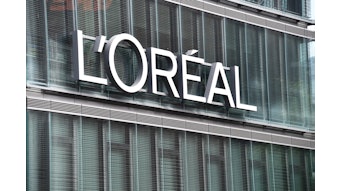According to NIQ’s 2024 report “Simplifying Skin Routines,”a in recent years, the beauty industry has witnessed a growing trend known as "skinimalism," which has significantly influenced consumer behavior and market dynamics. By 2025, this movement has firmly established itself, emphasizing simplified skin care routines that prioritize fewer, more effective products over complex multi-step regimens. This trend aligns with the broader cultural shift toward de-consumption, which values mindful consumption and sustainability over impulse buying and excess.
This article is only available to registered users.
Log In to View the Full Article
According to NIQ’s 2024 report “Simplifying Skin Routines,”a in recent years, the beauty industry has witnessed a growing trend known as "skinimalism," which has significantly influenced consumer behavior and market dynamics. By 2025, this movement has firmly established itself, emphasizing simplified skin care routines that prioritize fewer, more effective products over complex multi-step regimens. This trend aligns with the broader cultural shift toward de-consumption, which values mindful consumption and sustainability over impulse buying and excess.
Skinimalism encourages consumers to embrace efficiency in their skin care and beauty practices, reducing waste and prioritizing the quality of products used. As noted in NIQ’s report, 75% of households purchase three or fewer different skin care products, a reflection of consumers' preference for simplicity in their routines. This trend has been further amplified by platforms like TikTok, where users showcase their streamlined beauty routines and resist the norm of excessive consumption.
The impact of skinimalism on the beauty industry is evident in the purchasing behaviors of skin care customers. Nielsen's data reveals that while the overall facial skin care market continues to grow, there is a notable shift toward core product types such as general/multi-purpose cleansers, day moisturizers, and facial treatments. These categories have seen an increase in sales, while less commonly used products like facial skin appliances and cleansing masks have reportedly experienced a decline.
Industry experts have also observed that skinimalism is not just about reducing the number of products used but also about focusing on high-quality ingredients and the efficacy of the products chosen. This approach is resulting in increased spending in core product categories, as consumers are willing to invest more in products they perceive as beneficial and aligned with their values.
The skinimalism trend underscores a significant shift in consumer attitudes towards beauty and skin care, with lasting implications for the industry. It highlights a move away from overconsumption and a renewed focus on simplicity, efficiency, and sustainability, shaping the future of beauty in 2025 and beyond.
Minimalism and Packaging in Beauty, Personal Care and Fragrance
The trend of minimalism goes beyond just skin care and cosmetics—it’s redefining the entire beauty industry. This movement has inspired a significant shift in packaging design across all categories, with more brands and manufacturers embracing clean, simplistic aesthetics. From sleek, monochromatic bottles to eco-friendly, functional designs, the focus is now on creating products that feel modern, understated, and intentional. Minimalist packaging not only appeals to consumers seeking elegance and sophistication but also aligns with the growing demand for sustainability and reduced waste, making it a win-win for both style and substance.
ahttps://shop.nielseniq.com/product/us-myth-or-fact-simplifying-skin-routines/











